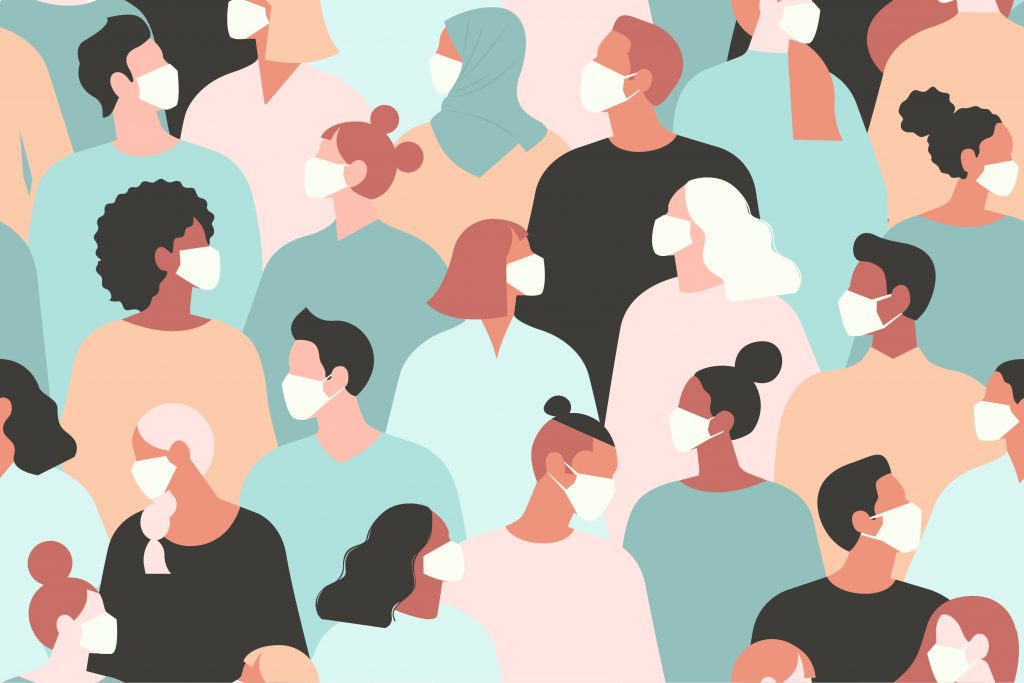Frank Garner, MD, Chief Medical Officer
Q: How has Comprehensive Healthcare been impacted by COVID-19?
A: We were impacted much like other healthcare organizations. We xperienced a shortage of Personal Protective Equipment (PPE), and we had to act quickly to identify the ways that infection could spread, and do what we could to prevent it. The United States has not faced a nation-wide andemic for some time, which created a false sense of security. No one was ready, in terms of funding and supplies, and that was part of the problem. While we have had staff members who are ill, months passed without an epidemic in any of our units. That is due to everyone taking this seriously and watching diligently.
Q: What procedures have you had to put in place?
A: We first initiated an Incident Command group to establish and modify screening procedures and other guidelines. There were a number of things we did to protect our buildings, from Yakima to Walla Walla. The first was to do as much as we could out-of-doors, away from the facility where there is better air flow. We also had to start thinking of alternative ways to treat our clients.
We made special arrangements for every program. For example, methadone has many, many people coming in and out every day. Thankfully, the State did allow for us to give people additional take-home doses so that they did not have to come in as often. Even with these changes, our staff still has a lot of contact with people, and we needed the appropriate PPE.
The most concerning place for us to have an outbreak would be in any of our residential centers. For example, Gleed Orchard Manor is a closed facility where we have elderly or debilitated individuals who are most vulnerable. Crossroads, Stepping Stones, Pathways, and our Evaluation and Treatment Facilities also have patients in contained areas. The main concern was keeping infections out. We established screening procedures in all of our buildings to keep infection out of our treatment areas as staff is more likely to get the infection from somewhere else and bring it into the facility. We also began screening and closely monitoring our patients, and preparing a unit in case there was a need to quarantine a patient.
In terms of masks, all staff who are in the presence of patients, or are visiting an inpatient unit all wear a mask, because we might be carrying the virus into that area.
Q: How has client care changed after the COVID-19 pandemic?
A: The biggest change is probably that we do not have clients coming into our outpatient facilities. The first reason for making this decision was because we wanted our clients to stay home and be protected. We also wanted to reserve our buildings so that our staff can safely come to work rather than having them work from home, I’d rather staff be able to come into a protected building. Many of our employees don’t have a workplace at home, either.
Thankfully, we were able to provide outpatient services via telehealth, through phone and secure video connections. We expect to see expanded telehealth services in the future.
Q: What has the response of the community been like?
A: We much appreciate the donated cloth masks and face shields because they can be cleaned and reused. These donations are a true gift. Surgical masks and N-95 ventilator masks are both in short supply and are very expensive. The reusable cloth masks and shields were very appreciated.
We also received some donated lunches, and we were very grateful for that. I can tell you it has been stressful for staff, having to adjust to a new work setting, to worry about what they are doing and need to do in terms of protecting others, and so on. So, to see that the community supports them was wonderful.
Q: What will the phases of reopening look like for Comprehensive Healthcare?
A: Most likely, we will open up a little and close back down, based on local data, because it is not anticipated that the pandemic will be over within the next couple of months. It is likely that it will be gradual, and that we will begin with a gradual opening of our outpatient centers.
We have been allowed to provide medication management and therapy visits by phone, and are currently able to bill for those services, we have never had that before and that enables us to treat people at home. At what point the telehealth waivers completely end, and at what point we will see people face to face, we don’t know.
Q: Is there anything Comprehensive Healthcare needs that can help us right now?
A: In terms of telehealth, we have things that are helping us such as technology and waivers by the state to see these individuals by phone only, but it would be ideal to have them for quite some time, because not all of our clients have the technology to connect with us by secure video.
What can help us would be better access to testing and antibody testing. Right now, it is difficult to get tested if there are no symptoms. It would be helpful to know who has immunity—that would help me know if a person can come back to work, or if a person was exposed, but has immunity.
The most helpful thing would be a vaccination, but we know that is still a long way off.



